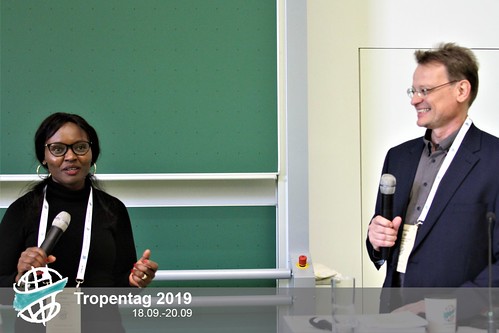Is nutrition sensitive value chain a solution for sustainable food system?
Nutrition Sensitive Value Chain (NSVC) is not just a value chain. It uses a set of multidisciplinary tools and methods, research and development that aim at improving the nutritional status of the target population as well as incomes and livelihoods of actors along the chain. It also consists of products, processes, people and policies that support nutrition in the food value chain.

By adopting the NSVC framework, a project is able to improve diets of vulnerable rural and urban consumers through increased consumption of more diverse, safe and nutrient-dense foods, which are sourced directly from smallholder farmers. Therefore, NSVCs touch everyone in the chain from farmers, wholesalers, processors, consumers and state actors (policies, standards and safety authorities, NGOs etc.).

By adopting the NSVC framework, a project is able to improve diets of vulnerable rural and urban consumers through increased consumption of more diverse, safe and nutrient-dense foods, which are sourced directly from smallholder farmers. Therefore, NSVCs touch everyone in the chain from farmers, wholesalers, processors, consumers and state actors (policies, standards and safety authorities, NGOs etc.).
The workshop conducted by Matthias Jager and Christine Chege from the International Centre for tropical agriculture (CIAT), at the 2019 Tropentag in Kassel, Germany provided insights on how NSVC framework can be a solution for achieving a sustainable food system. In their project which was implemented in Kenya and Uganda by CIAT and partners, Small and Medium Scales Enterprises (SMEs) played a key role in ensuring that the safe and nutritious products they developed (porridge flours) were accessible, affordable and acceptable by the target low income consumers in the informal settlements of Nairobi, Kenya and Kampala, Uganda. The multi-composite nature of the ingredients of these products will contribute in improving the nutrition status of the target consumers.
Findings from one of their studies published in the British Food Journal show that consumers would accept new products that are similar/closer to what they are used to consuming and there is high acceptability of nutritious foods compared to the less nutritious. In addition, consumers are concerned about other product attributes such as product composition; the level of processing; and price. Interestingly, findings from another study they recently published in the Food Policy Journal shows that the resource-poor consumers are willing to pay as high as 25% premium for the safe and nutritious porridge flour compared to only maize or millet porridge flour. Nutrition awareness came out as an important factor that influences purchase and consumption of nutritious foods: providing consumers with nutrition information about the products positively influenced their willingness to pay for the new porridge flours.
The current NSVC project by CIAT and partners also uses an inclusive business model (Methodology) which links smallholders to buyers. The SMES use raw materials produced by smallholders, to develop porridge flour products. The flours are composed of bio-fortified beans, orange-fleshed sweet potato, amaranth leaves and grains, among other ingredients. To reduce post-harvest loss, contamination and nutrient leakage, smallholder farmers, aggregators and the SMES used an efficient solar drier in the entire process. A sum of three products were developed and launched in Kenya and Uganda. In Kenya, two fast cooking porridge flours Toto Tosha and Jamii Tosha were developed and commercialized by Azuri Health Limited, while Nutreal Limited developed and commercialized Super Kawomera instant porridge flour in Uganda.
This CIAT led project gives the practical example of how we can reduce malnutrition, post-harvest loss, and improve food safety and incomes of actors along the food chain using the NSVC framework. The team is looking out to upscale this approach in other countries.
This project was funded by the German Federal Ministry for Economic Cooperation and Development (BMZ) and GIZ, and a co-funding provided by the GIAR Research Program on Agriculture for Nutrition and Health (A4NH).





Comments
Post new comment